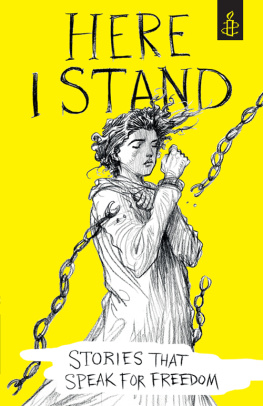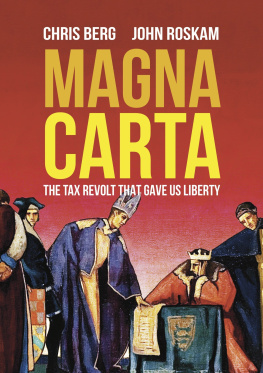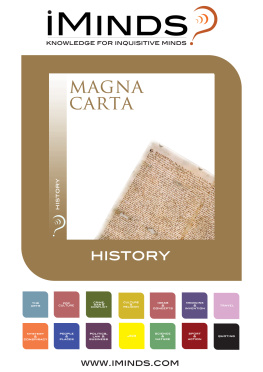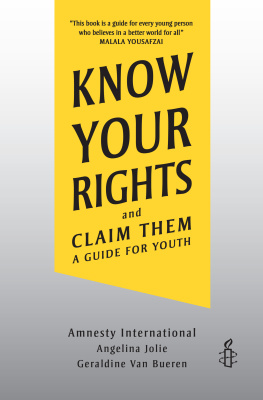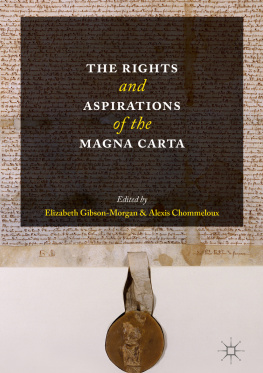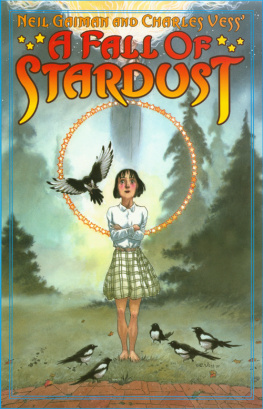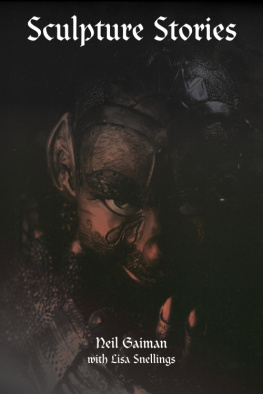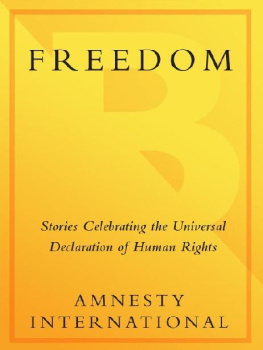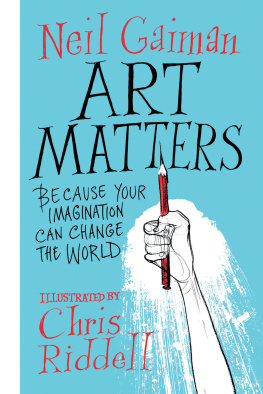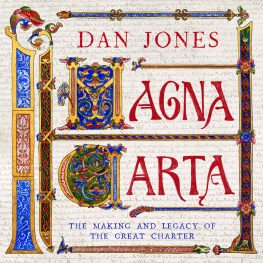

INTRODUCTION
As the vastly outnumbered Scottish forces looked out over the looming ranks of the English army on a September morning in 1297, William Wallace, the Scottish knight and leader, roared: They may take our lives, but they will never take our freedom!
In that moment, Wallace or rather Mel Gibson playing Wallace in the screen version Braveheart was tapping into the deep truth that the freedoms we enjoy today are worth dying for; and have in fact been paid for, in blood, many times over.
Today our freedoms and liberties include the right to vote for our leaders, the prohibition on the use of torture, the right not to be arbitrarily detained, the right to speak freely and the right to protest.
Freedoms do not spontaneously arrive, and they are not handed to citizens by benevolent rulers. Our freedoms in the UK were gained through a long and often bloody history of slowly establishing limits on the powers of mighty monarchs and tyrannical rulers.
The history of Western freedoms has many important milestones, including King John signing Magna Carta in 1215; the Bill of Rights in 1689; the US Bill of Rights in 1791; the 1833 Slavery Abolition Act; the 1948 Universal Declaration of Human Rights, to name but a few. Campaigns, demonstrations, protests and legal battles have resulted in many people now being able to vote in their leaders, enjoy greater protections at work and have the right not to be discriminated against.
But we need to be ever vigilant, because the freedoms that have been hard won for us can be lost in a moment by the stroke of a politicians pen as they were in the UK during the World Wars, when the army was given control over almost every aspect of civilian life and many injustices were suffered by ordinary people.
The greatest threats to liberty today come not from terrorism but from the fear of terrorism and our politicians misguided quest for absolute security. Unlike Wallace, the cry of the modern government at the first whiff of a terrorist threat is:They can take our freedoms, but they cannot take our lives.
We should not go along with governments counter-terrorism strategies that attempt to criminalize thought, limit free speech, restrict access to courts, ban protests and put society under continuous CCTV and internet surveillance. We must all be jealous guardians of our freedoms, and appreciate that many of the liberties that we enjoy in the West are still being fought for by citizens in other parts of the world who are ruled by dictators and tyrannical regimes.
To protect our freedoms and ensure that they are not diluted or removed, we need to:
CARE about rights and freedoms, want them for society and speak up for them when they are under attack;
QUESTION politicians and leaders when they say it is necessary to remove freedoms to create a safer society: ask them where their actions will lead;
ACT there are many small actions we can all take to safeguard our freedoms: write letters, speak out against injustice, vote, join campaigns and attend demonstrations.
Every gain for human rights and those freedoms we enjoy began with one or two people recognizing that something was worth fighting for, and joining with other like-minded people to make a difference. I hope you will all be inspired to do the same.
Jules Carey, Partner, Bindmans LLP
HARVESTER ROAD
John Boyne
Damien, age 8
I still miss my dad. I dont remember him very well because I was only four when he got cancer and died. Mum said that he hadnt been feeling well so he went in for tests but by then it was already too late and he was gone within a few weeks. Mark says that Im the only one who can stop Mum from getting cancer and dying too. So far, I must be doing a good job because shes really healthy and last week she won a badminton tournament and took home a trophy that she put on the mantelpiece next to my music prizes. I can tell shes really proud of it. She doesnt know that if it werent for me, she wouldnt have won anything. She probably wouldnt even be alive.
I used to call Mark Dr Richardson, but when he moved into our house on Harveer Road he said that I should call him Mark. After he and Mum got married he asked me if I wanted to call him Dad, but I said no and he seemed a bit disappointed. He wasnt trying to take my real dads place, he told me, no one could ever do that, but I should know that he would always be there for me just like my real dad would have been if he hadnt got cancer and died.
On Tuesdays and Thursdays Mum plays badminton and then she goes for a drink with the girls and doesnt get home till Im asleep. She calls it her Me Time. When I go up to bed, Mark comes with me. First he reads me a story and then we play the game that stops Mum getting cancer and dying.
I wish Id known Mark when I was four because then we could have started playing it earlier and maybe Dad wouldnt have got cancer and died. He was the one who explained to me the way medicine works and told me that I couldnt tell anyone or it wouldnt work and then Mum would get cancer and die and it would just be him and me, and I didnt want that to happen.
Months ago, Mum started to get sick and I asked Mark if we should play the game more often, but he said no, twice a week was enough. Mum was throwing up every morning and I got really worried. After a few months, though, she stopped getting sick and got fat instead and last week my baby brother was born. Mark said we should call him Edward after my real dad, and Mum cried and said that was the most thoughtful thing she had ever heard in her life and she was so lucky to have found a man like him, a second chance of happiness when lots of people dont even get one. All babies look the same to me but Mark says that Edward is something special and will be very handsome one day. Just give him a few years, he tells me, just give him till hes your age, Damien, and youll see how beautiful he is.
Rachel, age 14
Julia Sheers used to be my best friend but shes not any more. I hate her: she smells and shes got spots. She hates me too because Im prettier than her and she knows it. She used to like Steven Hailey and she sent him a note in class one day saying, Do you like me? with two boxes underneath that said Yes and No. It was so embarrassing. Steven sent it back with a third box saying, Im out of your league, and put a big X inside it. I took a photo of the note and sent it to Donna Wilton, who I really want to be friends with because shes the prettiest girl in our class. When I showed it to Justin, he said that was mean and I felt a bit ashamed of myself. I didnt want him to stop liking me so I deleted the photo and told him that I was going to punch Steven in the face for what hed done but Justin said that violence doesnt solve anything and I should just let things be.
I knew that I was in love with Justin on the first day of Mrs Richardsons maternity leave, when he came in and told us that he would be our substitute teacher for the rest of the year. He was wearing blue jeans, a white shirt and a really cool tie that he kept loosened in front of an open collar. He had sexy stubble and glasses but he only put them on when he was reading. When he asked my name I could tell that he liked me. And, no, its not some silly schoolgirl crush, actually, because hes told me that he loves me and that were going to spend the rest of our lives together and buy a house and go to concerts and have dinner parties where our friends come over and we try out recipes from Jamie Olivers books.
Next page

